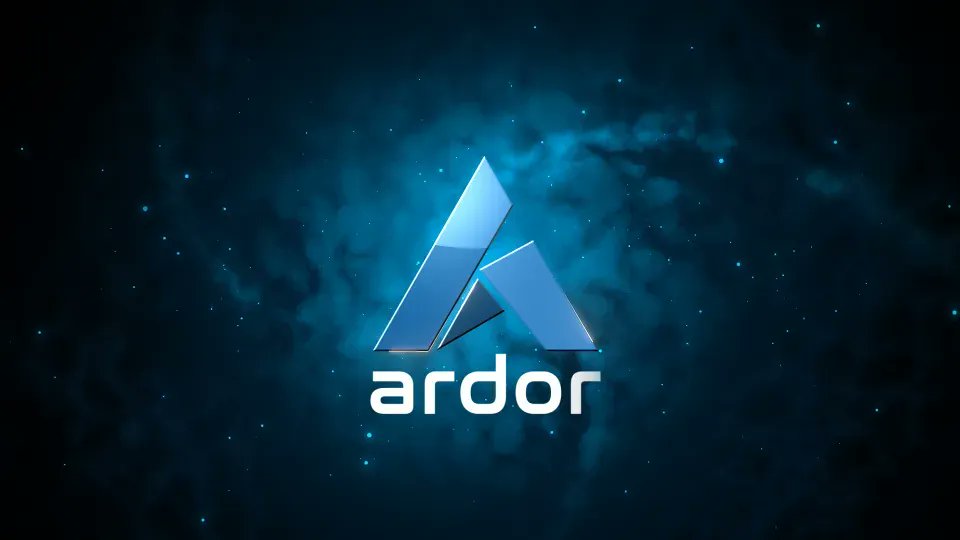
In the ever-evolving world of blockchain technology, Ardor has emerged as a powerful Blockchain as a Service (BaaS) platform. With its innovative approach and advanced features, Ardor is revolutionizing the way businesses utilize data ownership blockchain technology. In this article, we will explore the various aspects of Ardor and delve into the reasons why it is gaining popularity among businesses and developers worldwide.
What is Ardor?
Ardor is a blockchain platform that offers businesses a simplified approach to adopt and implement blockchain technology. Developed by Jelurida, a leading company in the blockchain industry, Ardor introduces a unique concept known as child chains. This concept revolutionizes the way businesses utilize blockchain by allowing them to create customized blockchain solutions while still enjoying the security and scalability provided by the main Ardor blockchain.
Traditional blockchain platforms often face challenges when it comes to scalability and efficiency. As more transactions occur on a blockchain, the network can become congested and slow. However, Ardor addresses this issue by employing a parent-child chain architecture. The main Ardor chain, known as the parent chain, acts as the security anchor, while businesses can create their own child chains that are interconnected with the main chain.
These child chains offer businesses the flexibility and freedom to design and deploy blockchain solutions tailored to their specific needs. Whether it’s supply chain management, decentralized applications, or tokenization, Ardor’s modular approach ensures that organizations can easily integrate blockchain technology into their existing systems. This flexibility is crucial as it reduces barriers to adoption and allows businesses to leverage the benefits of blockchain without disrupting their current operations.
Advantages of Ardor
Scalability and Efficiency
One of the key advantages of Ardor is its scalability. By utilizing child chains, Ardor can handle a large number of transactions simultaneously, ensuring that businesses can operate at scale without compromising on performance. The parent-child chain architecture also enables efficient transaction processing, resulting in faster confirmation times and lower fees compared to traditional blockchain platforms.
Customizability and Flexibility
Ardor provides businesses with the flexibility to create their own tailored blockchain solutions through child chains. This allows organizations to design and deploy specific functionalities according to their requirements, whether it’s for supply chain management, decentralized applications (dApps), or tokenization. The modular nature of Ardor makes it easy to integrate with existing systems, reducing the barriers to adoption.
Security and Reliability
With Ardor, businesses can benefit from the security and reliability of a robust blockchain infrastructure. The parent chain, which serves as the main security anchor, provides a high level of protection against attacks. Additionally, Ardor utilizes a proof-of-stake consensus mechanism, which ensures energy efficiency and reduces the risk of centralization.
Interoperability and Integration
Ardor is designed to facilitate interoperability with other blockchain platforms and traditional systems. Its built-in features enable seamless integration with external networks, allowing businesses to leverage the benefits of blockchain while maintaining compatibility with existing infrastructures. This interoperability opens up opportunities for cross-chain transactions, data exchange, and collaborative efforts across different industries.
Use Cases of Ardor
Ardor’s versatility and adaptability make it suitable for various industry use cases. Let’s explore some of the areas where Ardor can make a significant impact:
Supply Chain Management
By utilizing Ardor’s child chain architecture, businesses can streamline their supply chain processes. The transparency and immutability of blockchain technology enhance traceability, reduce counterfeiting risks, and enable efficient inventory management. Smart contracts on Ardor can automate complex workflows, ensuring accountability and efficiency throughout the supply chain.
Decentralized Applications (dApps)
Ardor provides a robust platform for the development and deployment of decentralized applications. The child chain feature allows developers to create specialized dApps tailored to specific use cases, such as finance, gaming, identity verification, and more. Ardor’s secure and scalable infrastructure ensures that dApps can handle high transaction volumes and deliver a seamless user experience.
Tokenization and Asset Management
Ardor enables businesses to tokenize assets and create digital representations of real-world assets. This opens up new possibilities for fractional ownership, asset trading, and crowdfunding. With Ardor’s built-in features like the Asset Exchange and Monetary System, businesses can easily manage and trade digital assets, creating liquidity and unlocking new avenues of investment.
Conclusion
Ardor stands out as a Blockchain as a Service platform that offers businesses a seamless and efficient way to leverage the power of blockchain technology. Its scalability, customizability, security, and interoperability make it an attractive choice for various industries. Whether it’s streamlining supply chain processes, developing decentralized applications, or tokenizing assets, Ardor provides the necessary tools and infrastructure to drive innovation and growth.